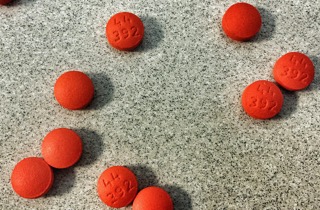
If you complain of mild to moderate pain a doctor will freely prescribe NSAIDs, or non-steroidal anti-inflammatory drugs. However, they are not benign as you think, especially if taken long term. NSAIDs are linked to numerous health complaints.
Common brands of NSAIDs include ibuprofen (Motrin, Advil) and naproxen (Aleve). Celecoxib (Celebrex), diclofenac (Cataflam, Voltaren) are prescription NSAIDs. Aspirin is also an NSAID, but it doesn’t pose the same heart attack and stroke risks.
NSAIDs have been linked to many health disorders:
- 40–60 percent increased risk of cardiovascular problems
- 25 percent increased risk of hearing loss
- 60 percent increased risk of heart failure
- Gastrointestinal problems such as pain, heartburn, nausea, vomiting, bleeding, ulcers, and leaky gut.
- Increased risk of asthma and eczema in children
NSAIDs increase heart attack and stroke risk
The link between NSAID use and heart attack is so well founded the FDA has issued a warning. The risk may begin within a few weeks of taking an NSAID and the longer you take NSAIDs, the higher your risk.
Functional medicine and NSAIDs — leaky gut
In functional medicine, we look at another sabotaging factor of NSAIDs — leaky gut.
Leaky gut means the lining of the small intestine has become so damaged that it becomes overly porous, allowing undigested food, bacteria, yeast, and other pathogens into the bloodstream from the gut. This triggers inflammation and pain throughout the body, exactly the sort of thing people use NSAIDs to relieve.
Functional medicine alternatives to NSAIDs
Nobody wants to be pain. It’s understandable to seek relief so you can feel and function better. However, many people are surprised to find their chronic pain diminishes substantially when they adopt functional medicine basics.
Following are a few ways functional medicine can relieve pain and eliminate the need for NSAIDs:
Eat an anti-inflammatory diet. This means removing foods that trigger inflammation, which for many people is gluten and dairy. Grains, legumes, eggs, sugar, and nightshades are other common culprits. After following the diet strictly for a period of time you can customize it so it’s more liberal but does not trigger pain.
Take plenty of nutrients that combat inflammation and pain. These include vitamin D (some people have a genetic variance that prevents sufficient vitamin D uptake), other fat-soluble vitamin (A, E, and K), nutrients to boost the primary antioxidant glutathione, and omega 3 fatty acids.
Look for natural remedies for inflammation and pain. There are many alternatives, such as liposomal turmeric and resveratrol. Ask my office for advice.
Balance blood sugar. Many people have blood sugar that is too high, too low, or a combination of both. Balancing blood sugar is critical to reduce inflammation and pain. These are just a few ways to use functional medicine to address the root causes of inflammation and pain so that you can stop taking NSAIDs. Ask my office for more advice.



Latest from the Blog
The Death of Red Dye #3
January 15, 2025What Is Red Dye No. 3? Red Dye No. 3, or Erythrosine, is a synthetic food color derived from coal tar. It was first approved by the FDA in the 1950s and quickly became one of the most popular artificial colors in food and cosmetics. Red Dye No. 3 was used in everything from candies, […] Read more
Latest from the Blog
Do You Know What Is In Your Protein Powder?
What’s Really in Your Protein Powder? Understanding the Risks Protein powders are a staple in many health-conscious diets, from athletes seeking muscle recovery to those simply aiming to boost their daily protein intake. With a wide variety of options available, choosing the right one can feel overwhelming. However, recent findings have raised concerns about what’s […] Read more